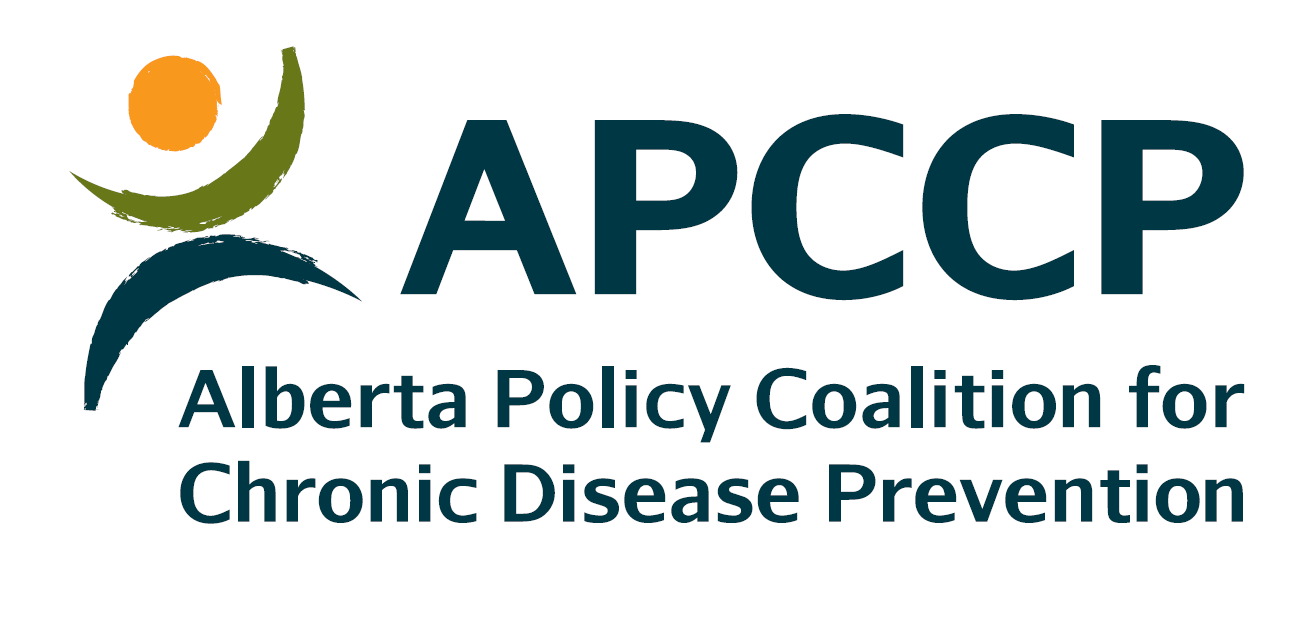The APCCP is working to make it easier for Alberta policy influencers to use evidence-based policy to promote healthy food for all Albertans.
We Advocate for:
There is strong evidence that exposure to food advertising has an effect on children’s food choices, diets, and health. As food and beverage companies in Canada currently face few barriers to unhealthy food and beverage marketing, we advocate for government action to prohibit such advertising at multiple venues and levels.
For more information, download our issue briefs:
Sugar-sweetened Beverages (SSbs) provide high amounts of calories, but virtually no health benefits. They are also thought to be one of the leading dietary factors influencing unhealthy weights. Over the last few years, there has been strong evidence linking body weight, risk for chronic disease, and the intake of SSbs. As SSbs are cheaper to buy than healthier beverages, taxation as a strategy to reduce the obesity epidemic in Canada can encourage healthy eating by creating a financial disincentive for purchasing and consuming unhealthy foods and beverages.
For more information, download our issue brief:
Most food options in Alberta recreation facilities are inconsistent with recommendations put forth by Alberta’s Nutrition Guidelines for Children and Youth (ANGCY). As recreation facilities are a popular destination for many Albertans, it is important to consider the types of foods and beverages offered at these facilities. Recreation facilities, which support healthy food environments, can reinforce healthy eating patterns for patrons, including children and youth, and contribute to obesity reduction and prevention efforts.
For more information, download our issue brief:
Ensuring all Albertan children have access to healthy food remains a significant challenge in our province. While many Albertans struggle to access sufficient amounts of food, the widespread availability of energy-dense and nutrient poor foods has also contributed to issues of overconsumption. Schools represent a promising location to help address such issues given the large number of young people who access these settings.
For more information, download our issue brief:
Neighbourhoods surrounding community schools can influence what children eat and drink before, during, and after the school day. When convenience stores or fast food restaurants are located near schools, consumption of junk food increases. Policy is an important tool for creating protective spaces for school-aged children in and around schools to facilitate healthy eating.
For more information, download our issue brief:
Supermarkets are a key source of healthy foods for Alberta consumers. However, when grocery stores relocate out of small neighbourhoods to build large supersized grocery stores in suburban areas, many Albertans are left with limited access to healthy food options within their communities. These store relocations are especially serious when grocery businesses use policy to prevent other supermarkets from re-opening a new grocery store in the same location. Referred to as “restrictive covenants,” these legal restrictions can impact the diet of residents by limiting the number of healthy food options and ultimately increase the risk for chronic disease.
For more information, download our issue brief:
Combating Restrictive Covenants: Breaking Down Neighborhood Barriers to Accessing Healthy Food
Household food insecurity is defined as inadequate or insecure access to food due to financial constraints. The experience of food insecurity is associated with multiple health problems in adults, including poor self-reported, mental, physical and dental health. To adequately address the root causes of household food insecurity, public policy responses are required to ensure households have consistent and sufficient income to afford healthy food and other basic needs.
For more information, download our issue brief:
Video:
Quality, affordable child care is essential to the well-being of children and families. Given the large amount of time many young people spend in this setting, creating environments that nurture physical health through healthy eating and active living is a key aspect of quality care. Increasing investments in affordable, quality child care and implementing child care policies to promote healthy eating and active living environments could help more children thrive in this setting.
For more information, download our issue brief:



